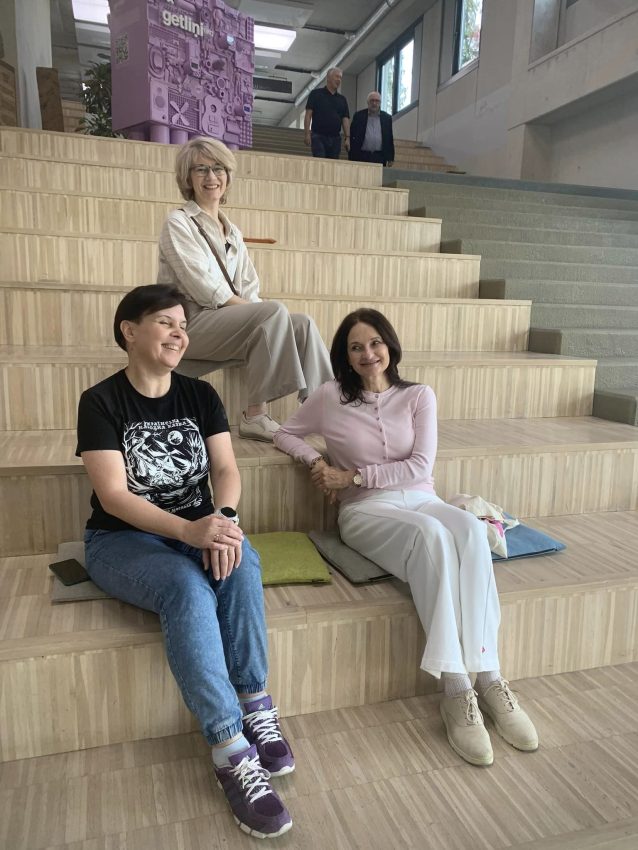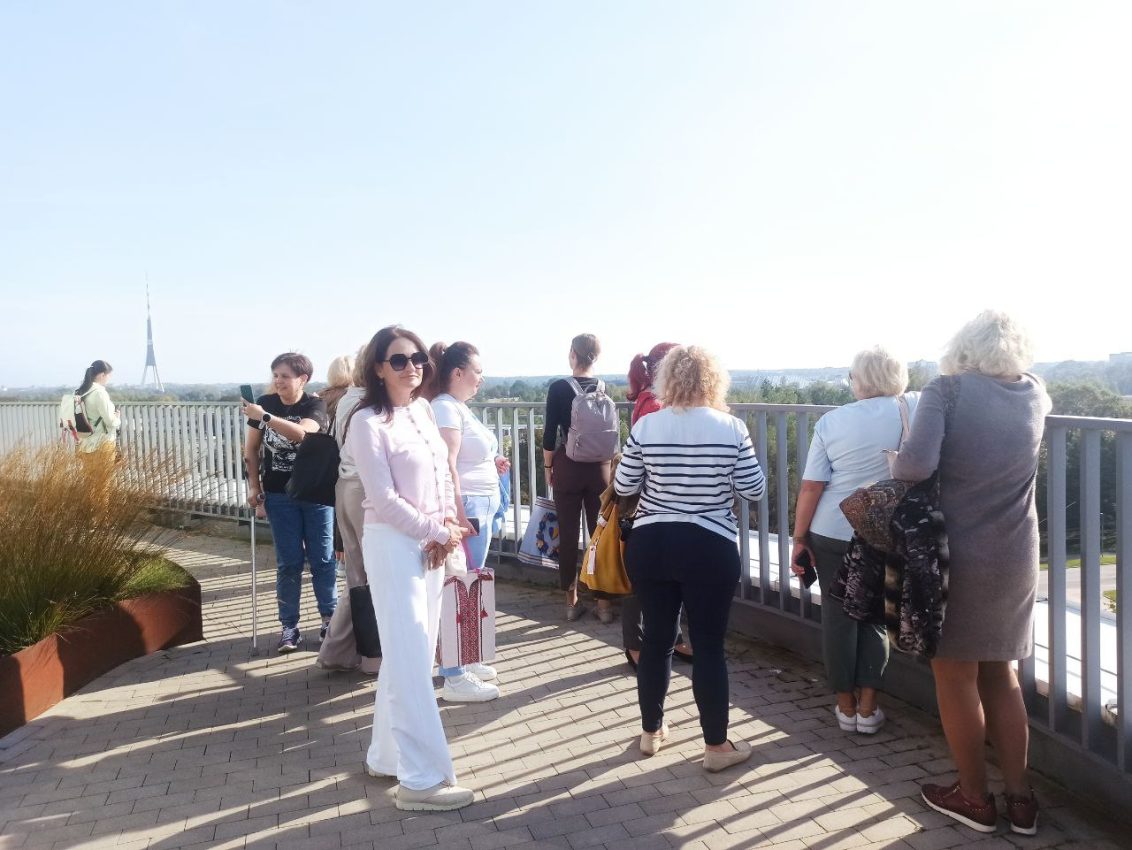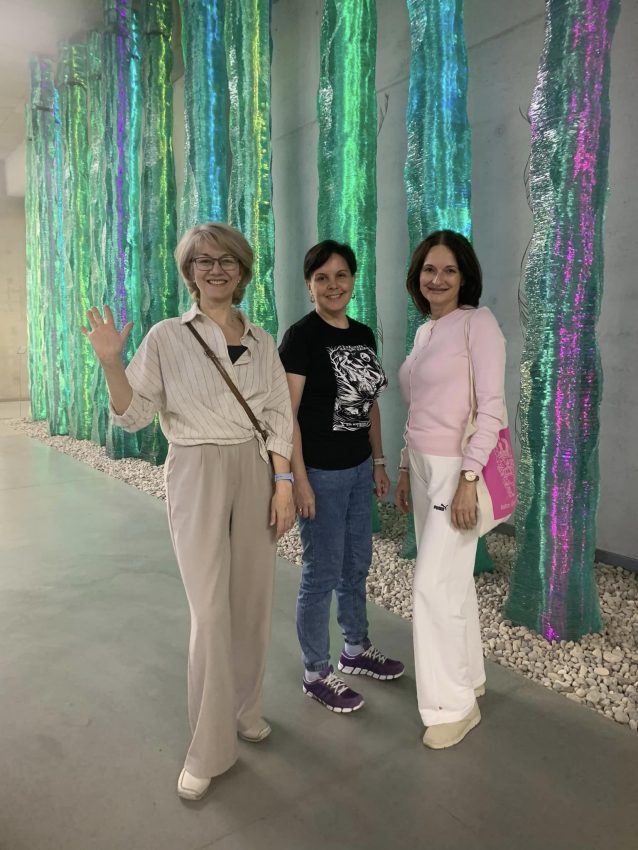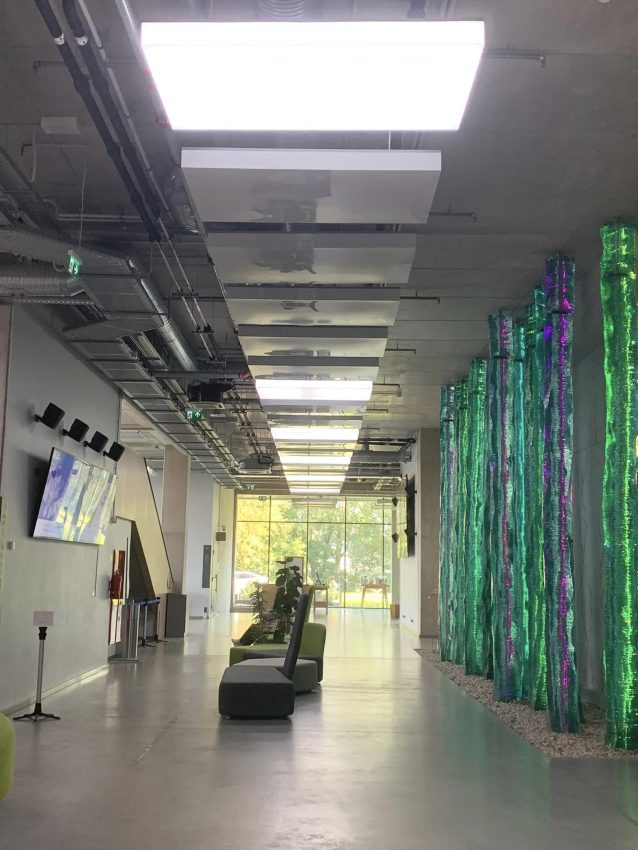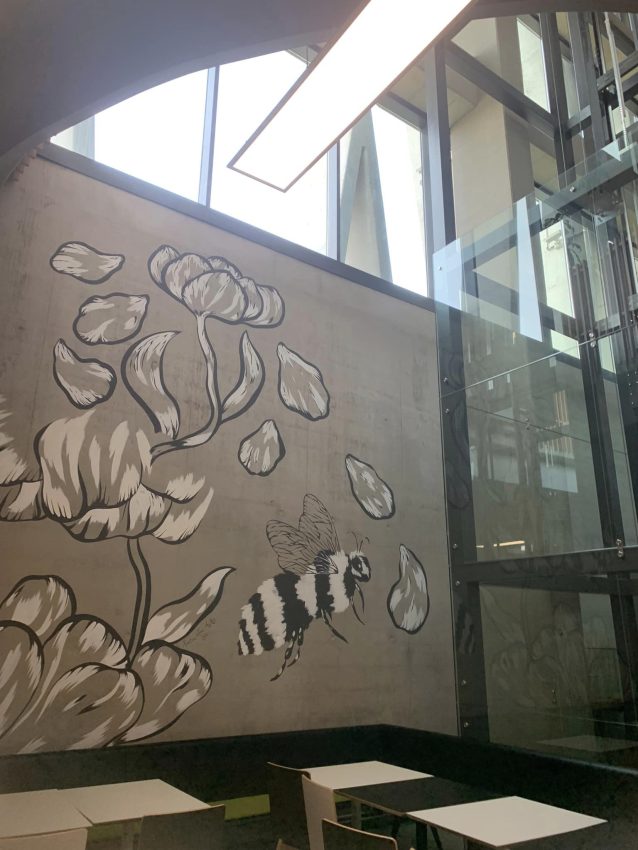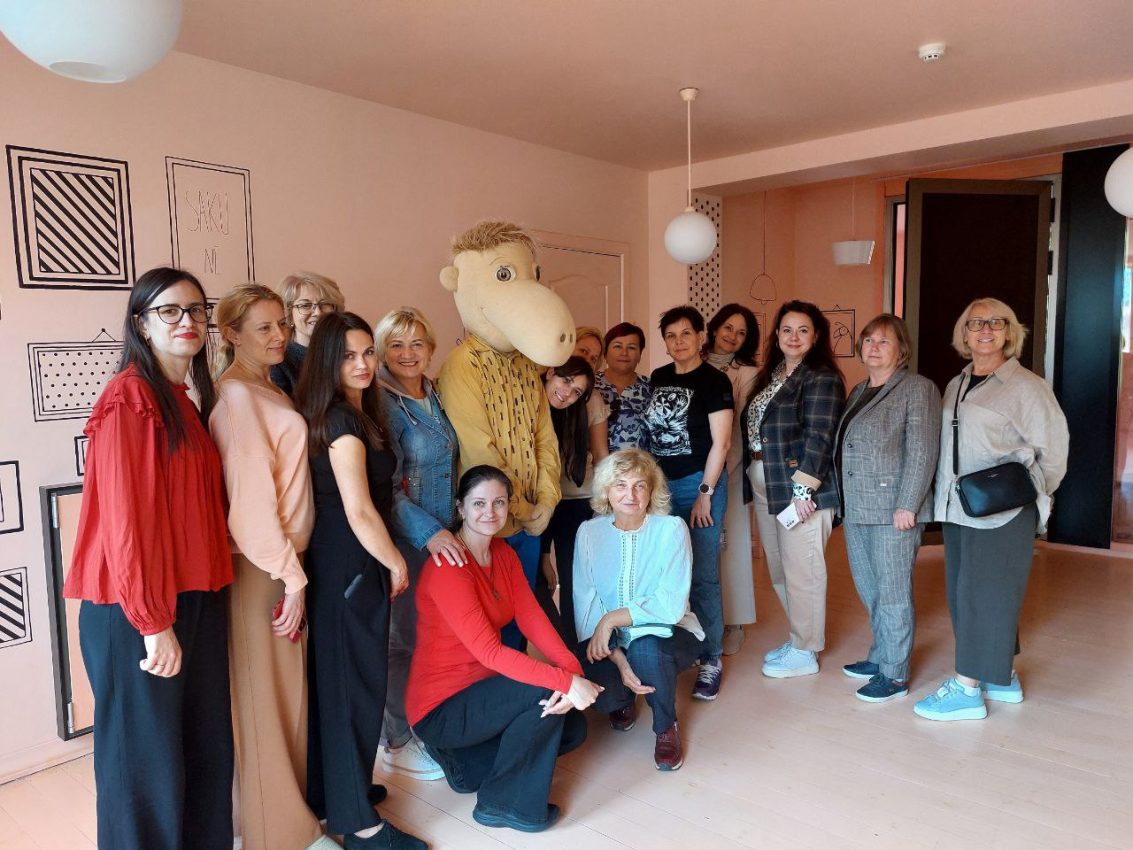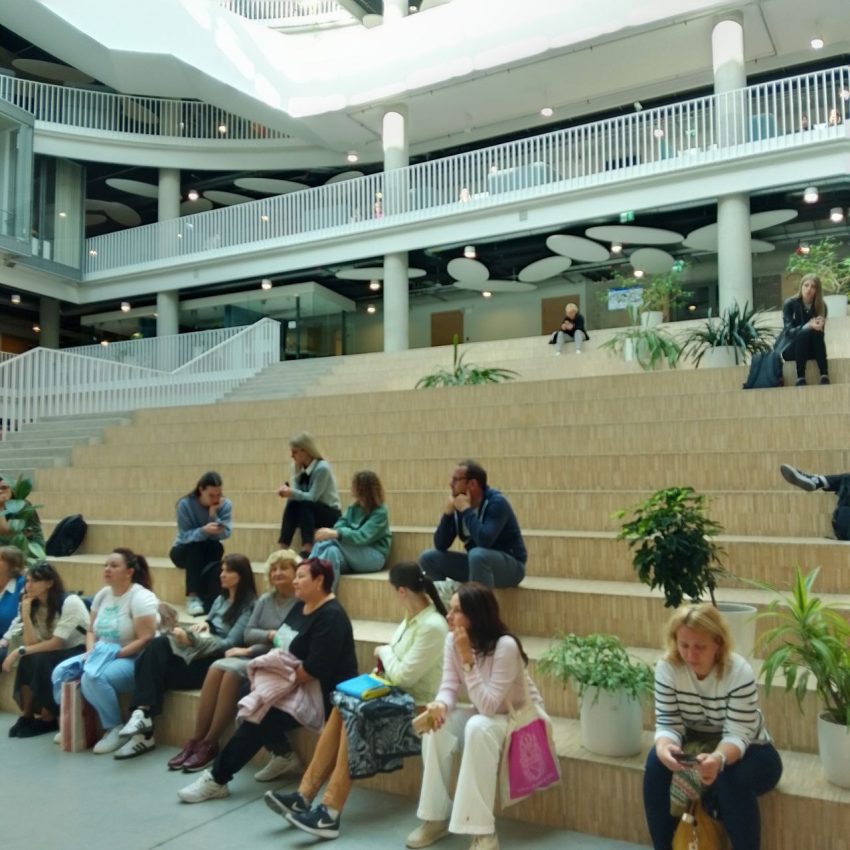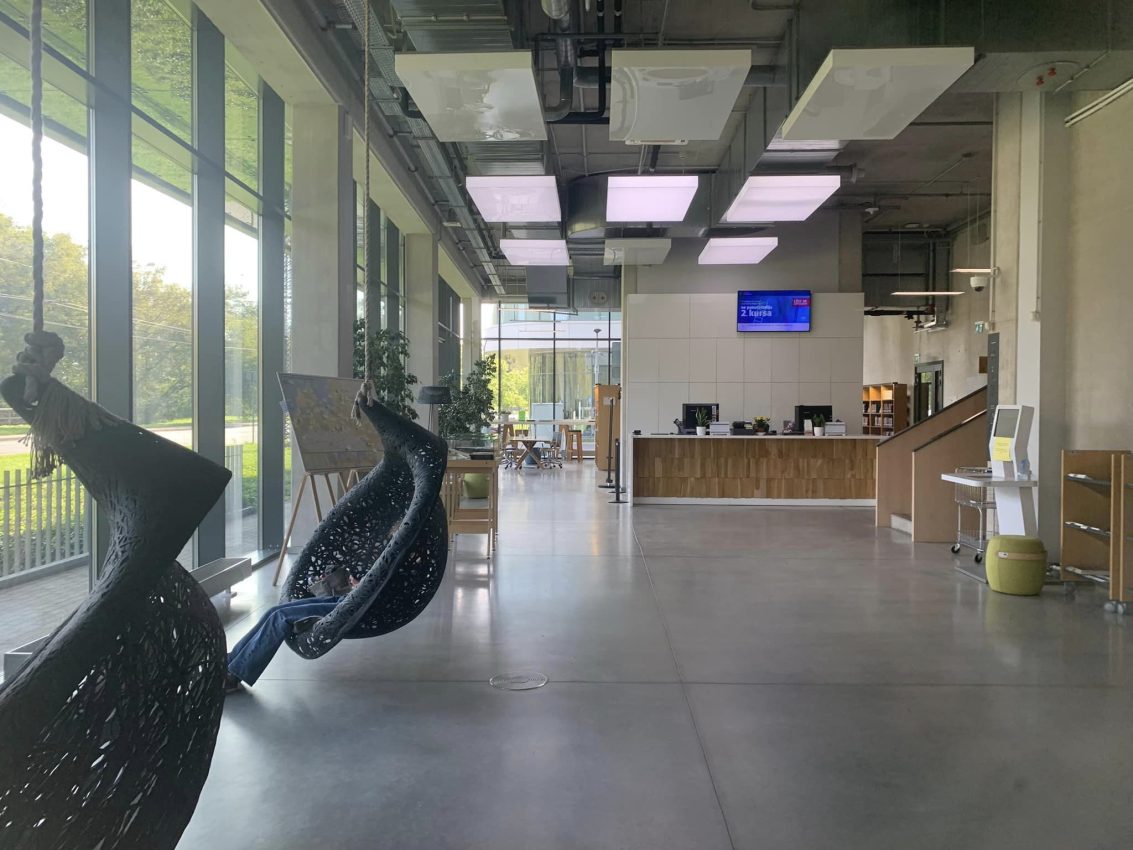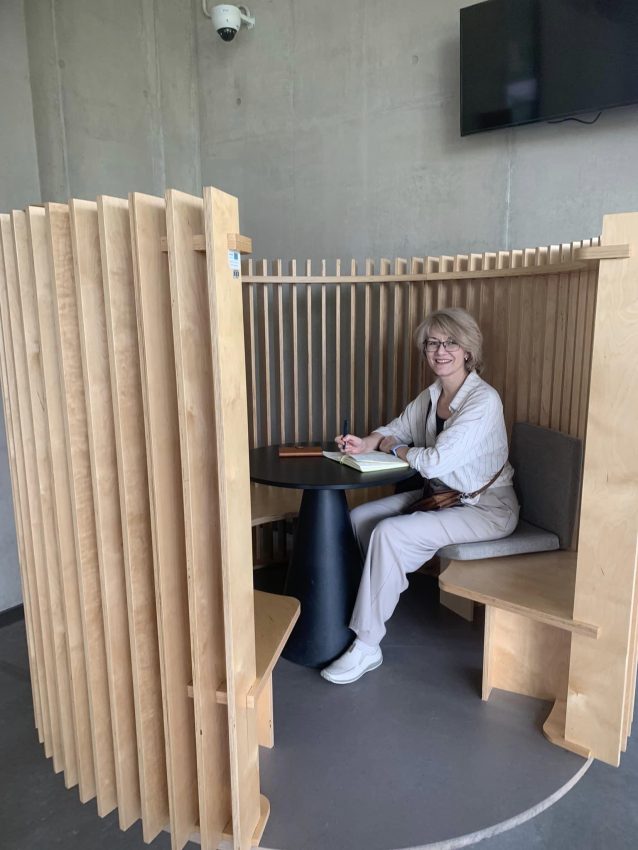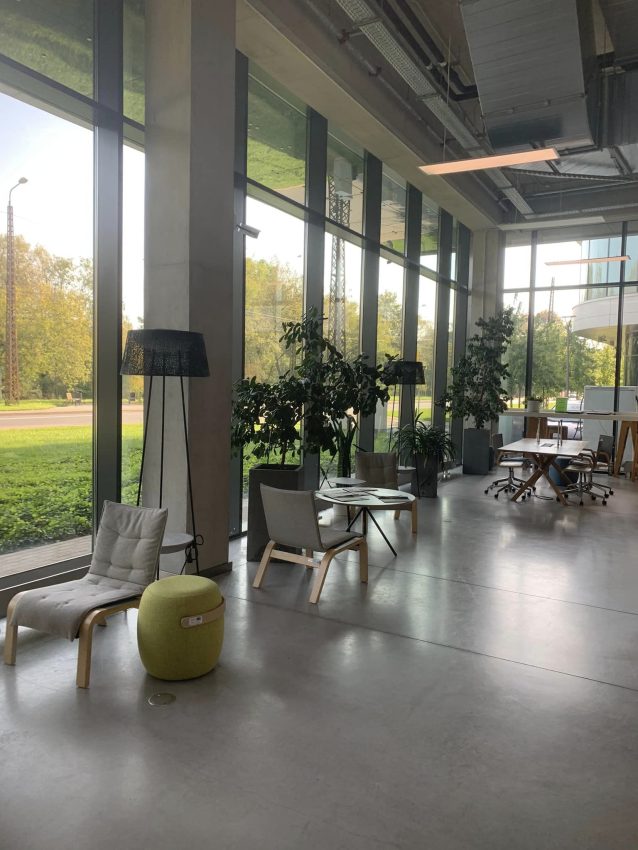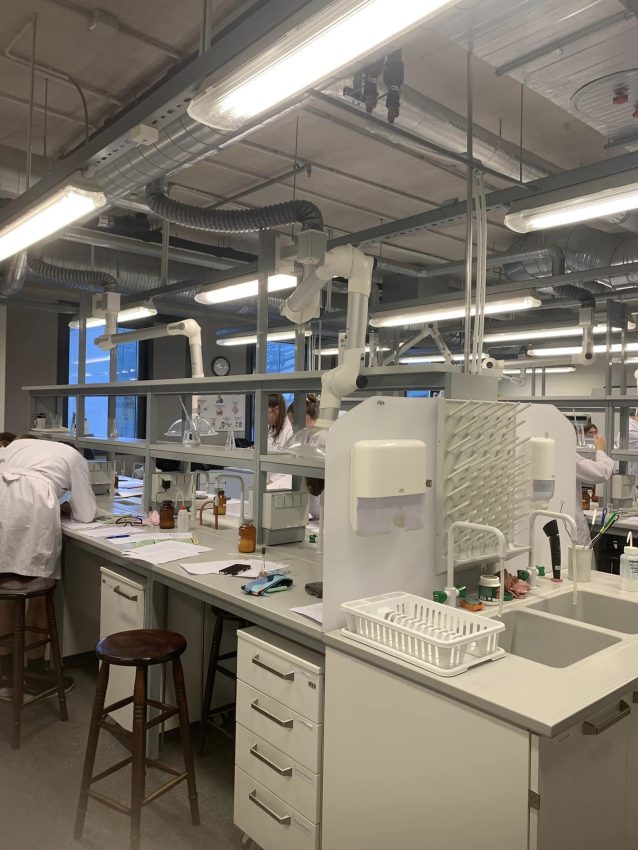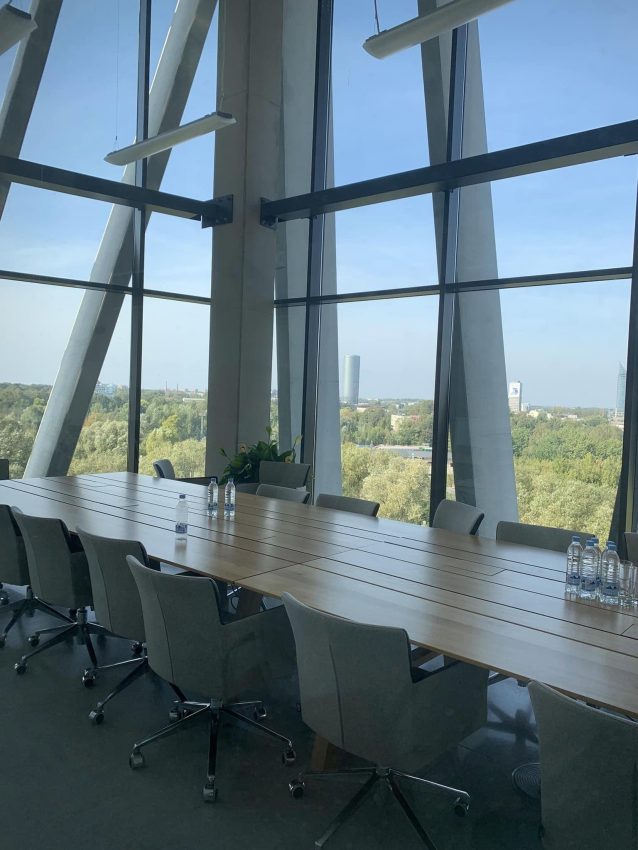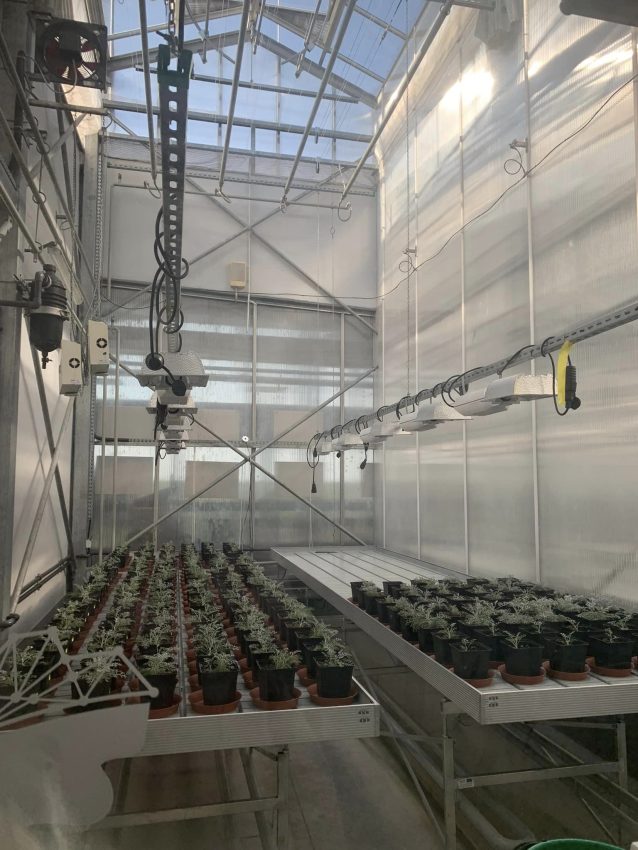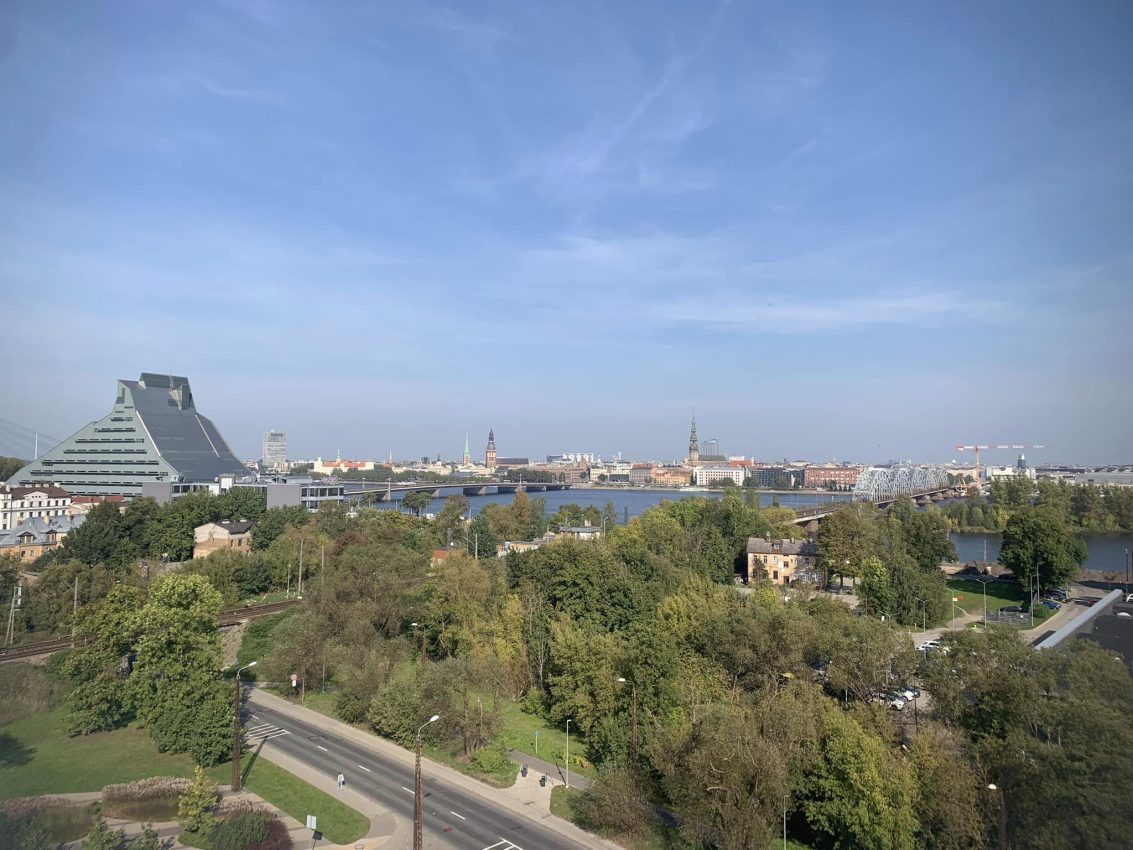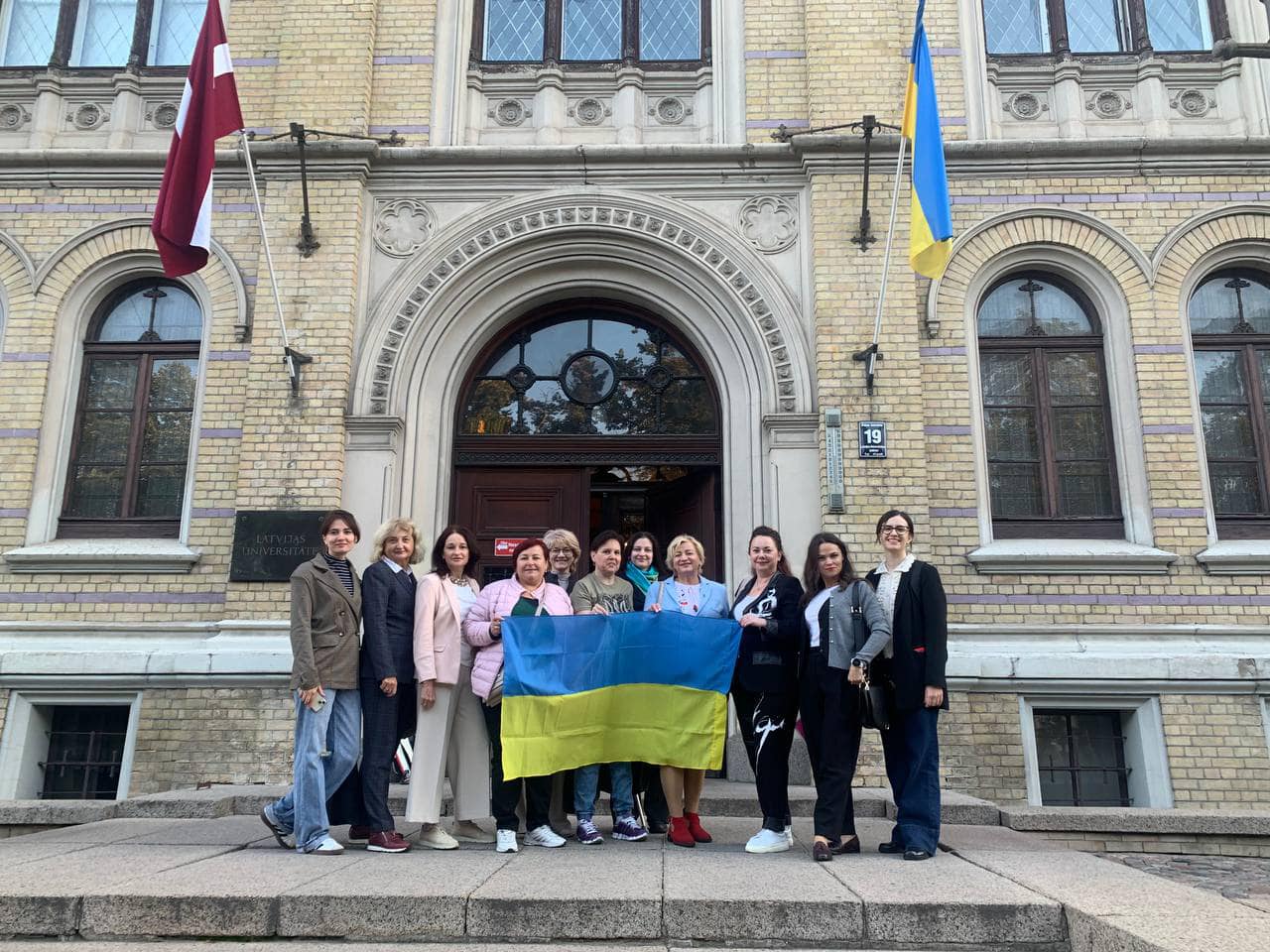The first study visit within the Erasmus+ BURN project took place from September 23 to 28 at the University of Latvia, Riga. The purpose of the visit is to get acquainted with the training of psychologists at the University of Latvia, the structure and content of bachelor's and master's programs, the work of crisis centers, centers of psychological assistance for different age groups.
Day 1.
Laura Pirsko, director of the master's program in psychology, warmly welcomed the participants from five Ukrainian universities and spoke in detail about the process of training psychologists - from undergraduate studies to professional practice. In the afternoon, the group visited the "Skalbes" crisis center, where the director of the center explained in detail how and what crisis counseling services the institution provides. Psychologists from Ukrainian universities actively participated in the discussion, asked many interesting questions and shared their own professional experience.
The participants were greatly impressed by the tour of the ancient building of the university. Teachers from Ukrainian universities were looking forward to new discoveries, valuable professional exchanges and interesting meetings in the following days of the visit.
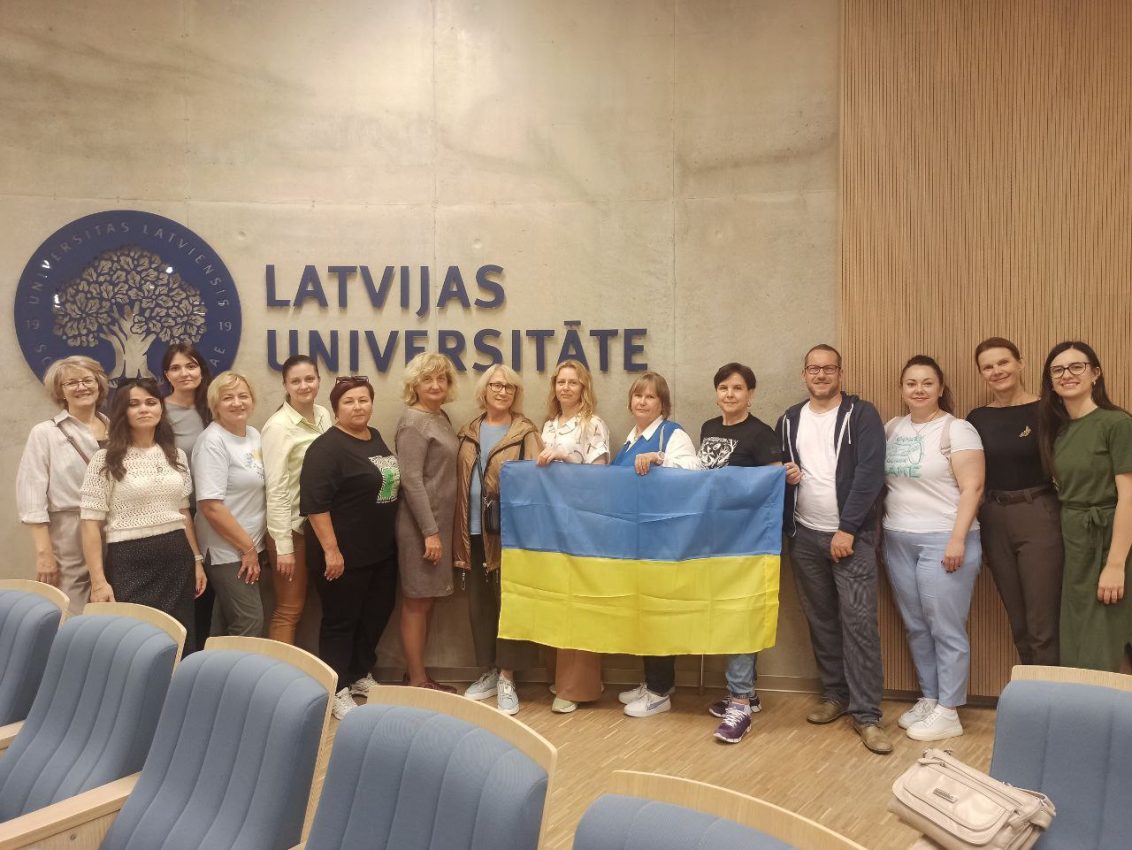
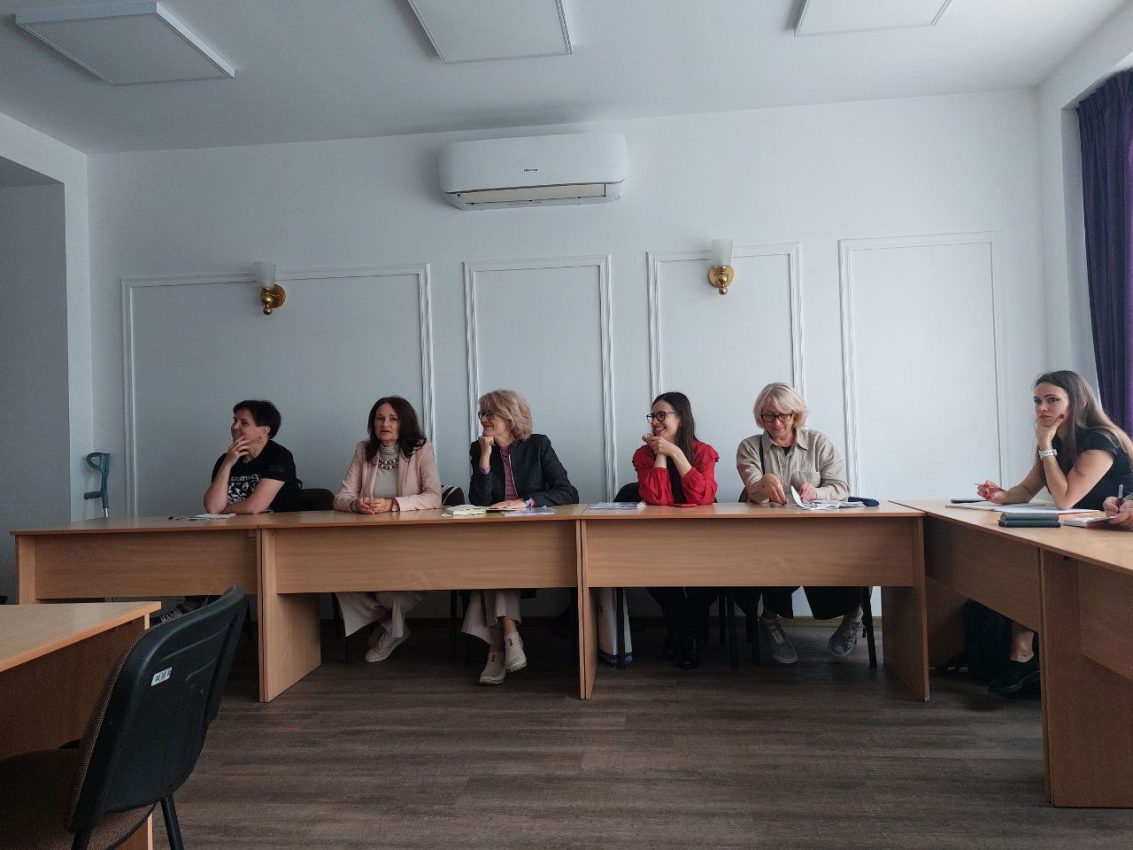
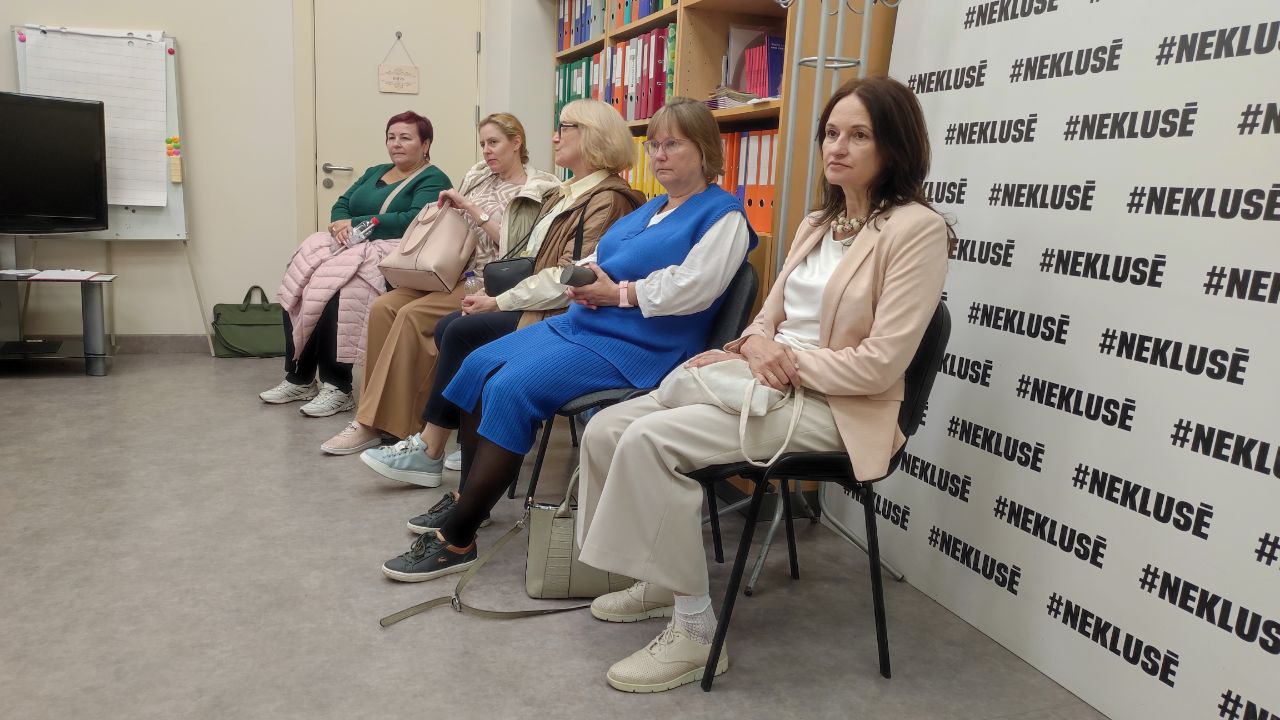
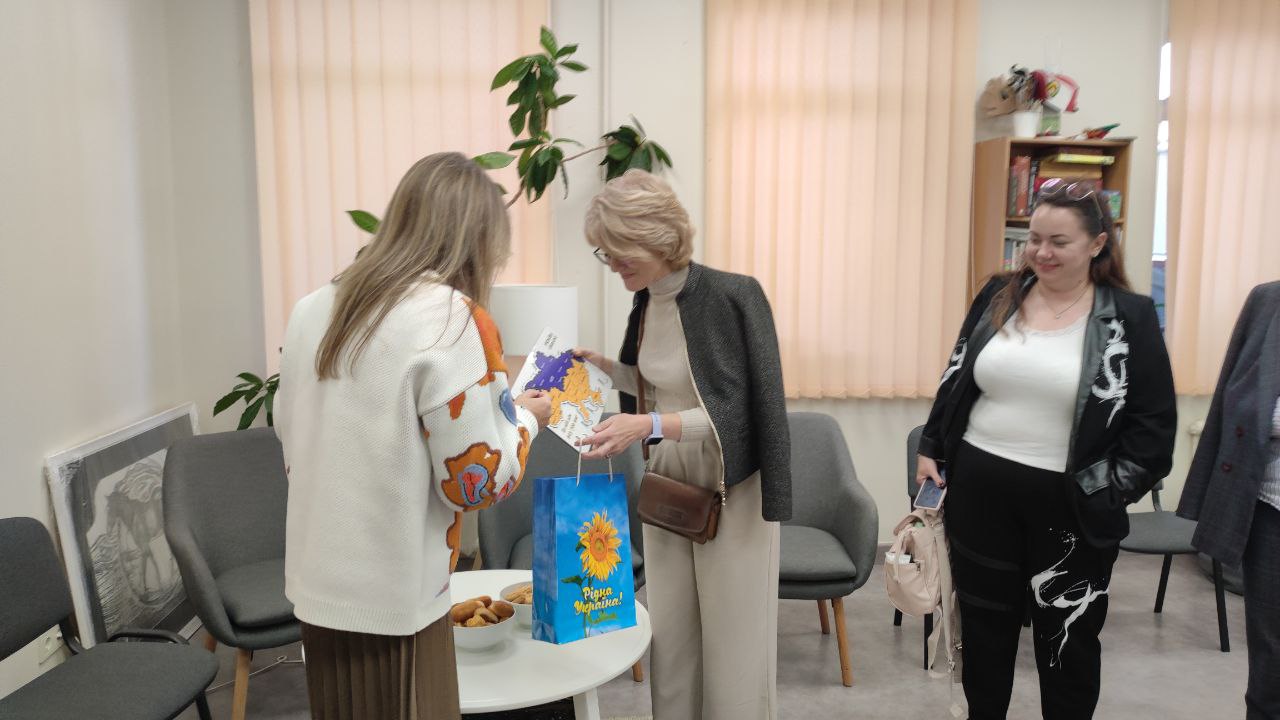
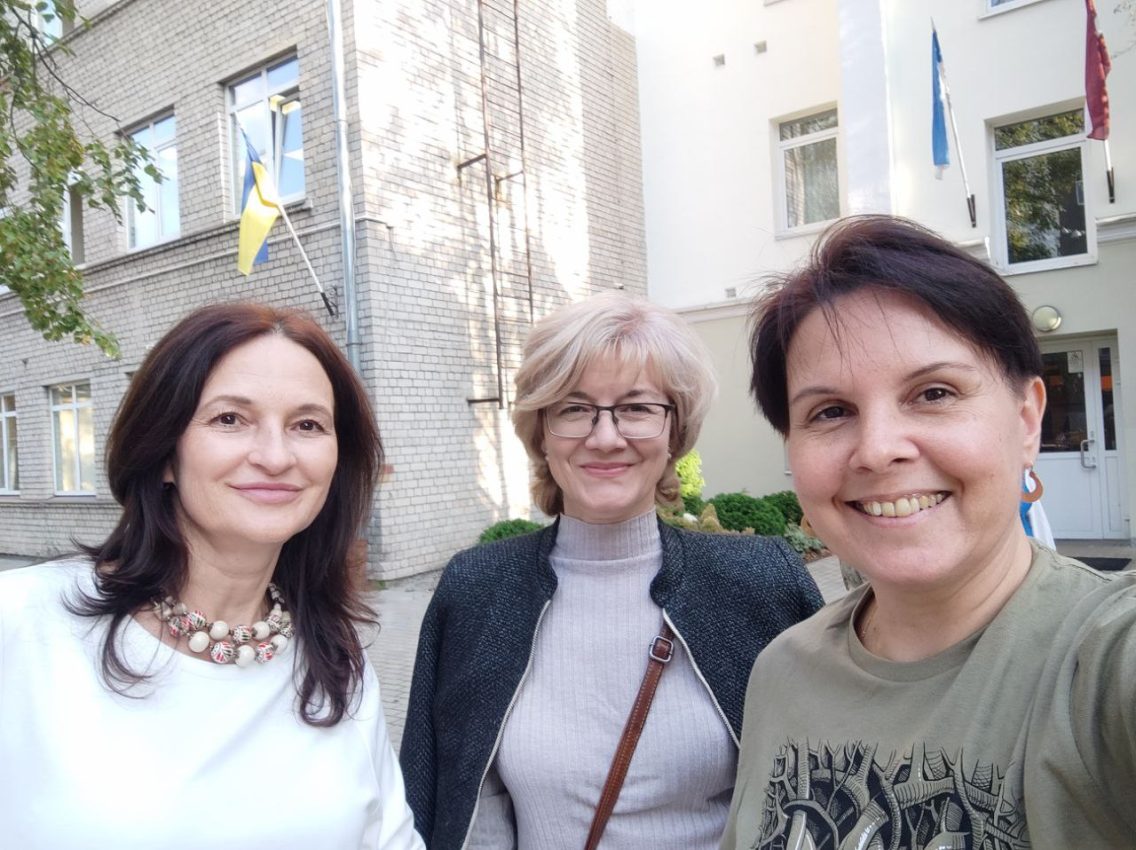
Day 2.
On the second day of the visit, the participants listened to a lecture by the outstanding professor Baiba Martinsone, a leading expert in the field of criminal and educational psychology in Latvia. Her ideas became a solid basis for the introduction of a social-emotional approach in education, which emphasizes conflict prevention and promotes tolerance and understanding in communication. This approach is currently being integrated at all levels of education – from preschool education to master's university programs. Professor Bayba Martinsone's lecture provoked a discussion and numerous questions from the participants. Most expressed a desire to consider how to integrate this strategy into existing psychologist training courses. The discussion that followed the lecture revealed the need for further popularization of this approach, especially among decision-makers at the state level.
In the afternoon, guests from Ukraine visited the center for providing psychological services to abused children, which operates on the basis of the Children's Department of the Clinical University Hospital.
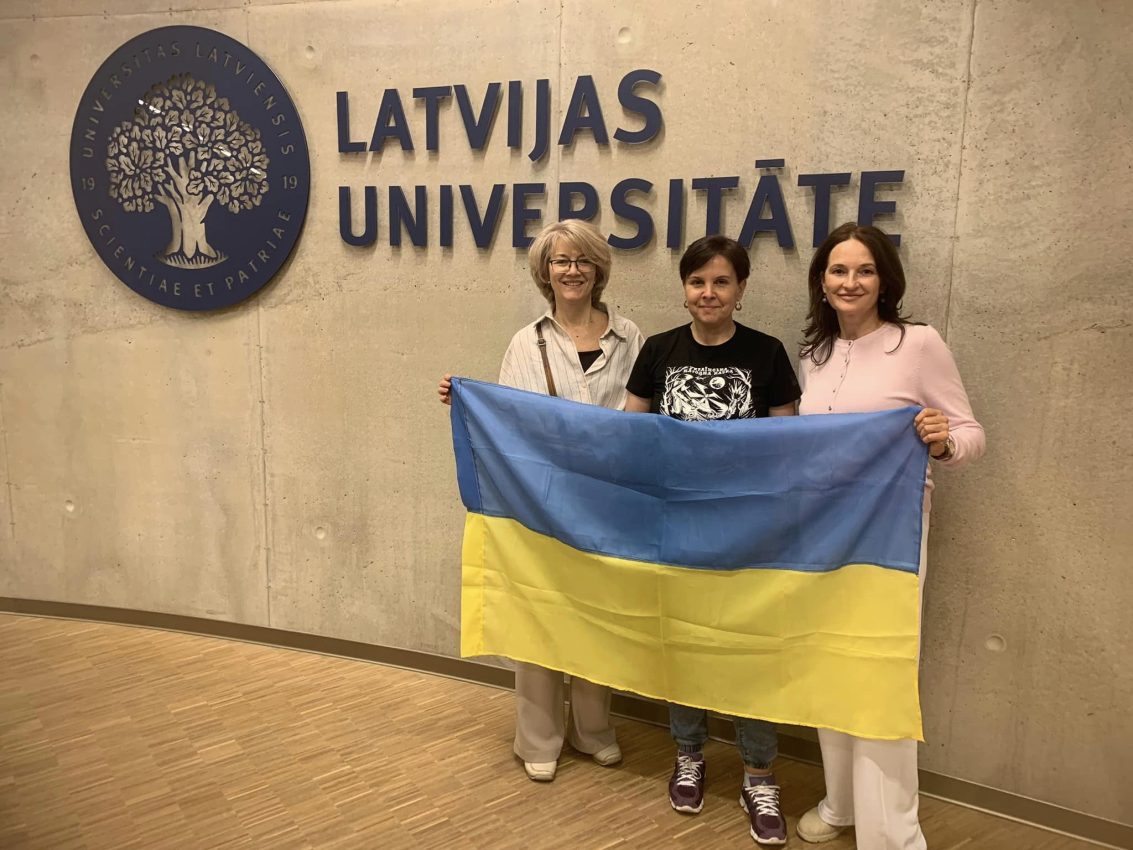
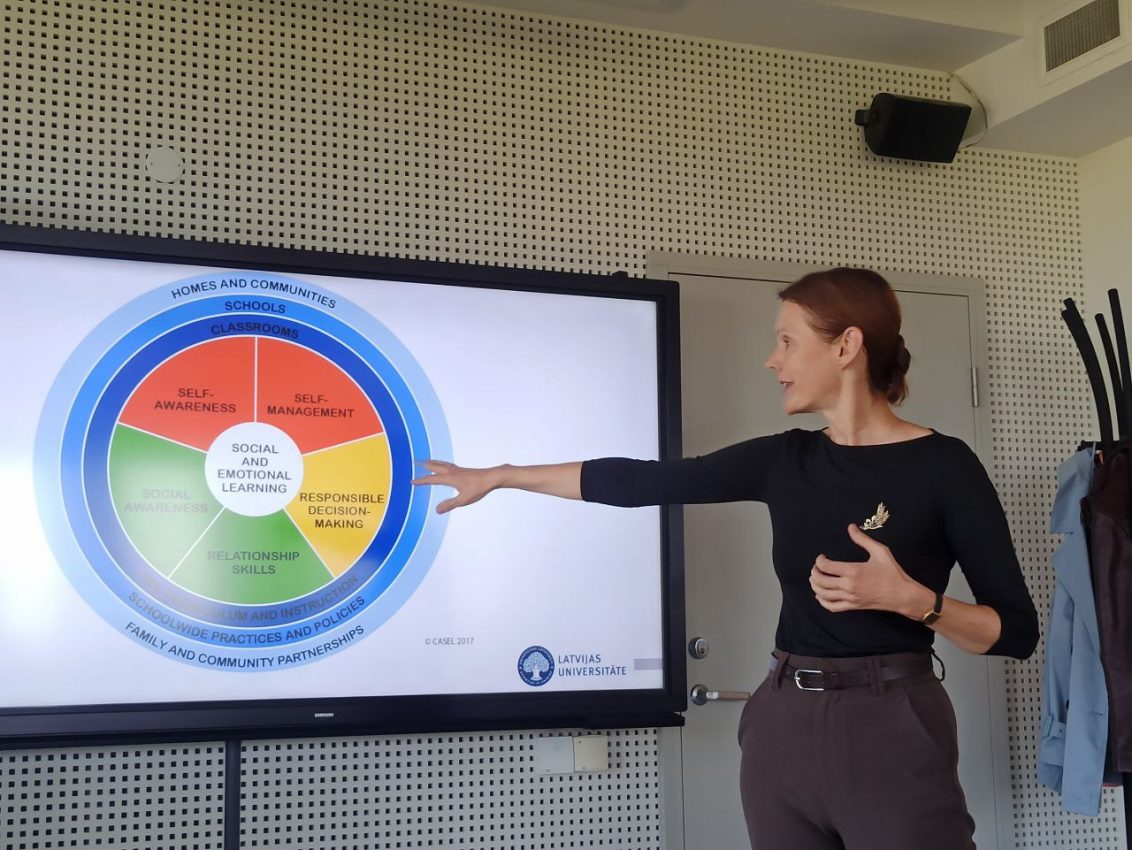
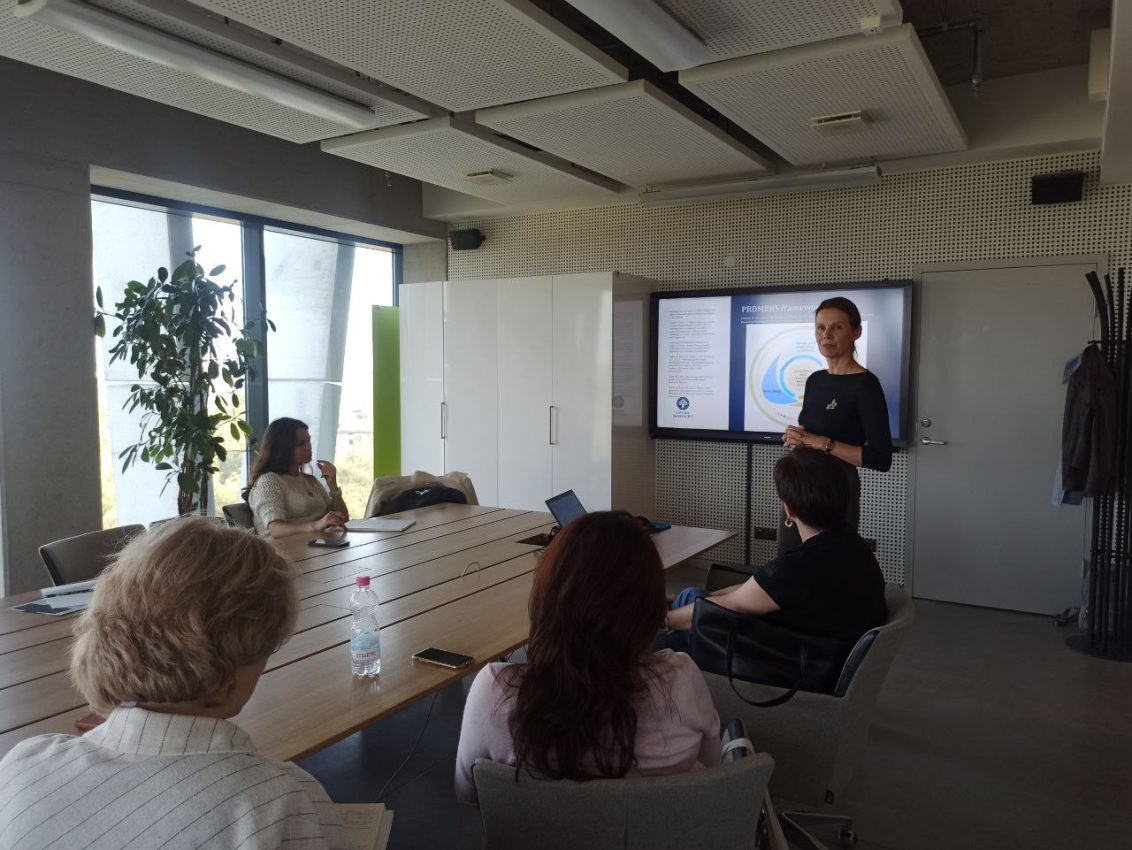
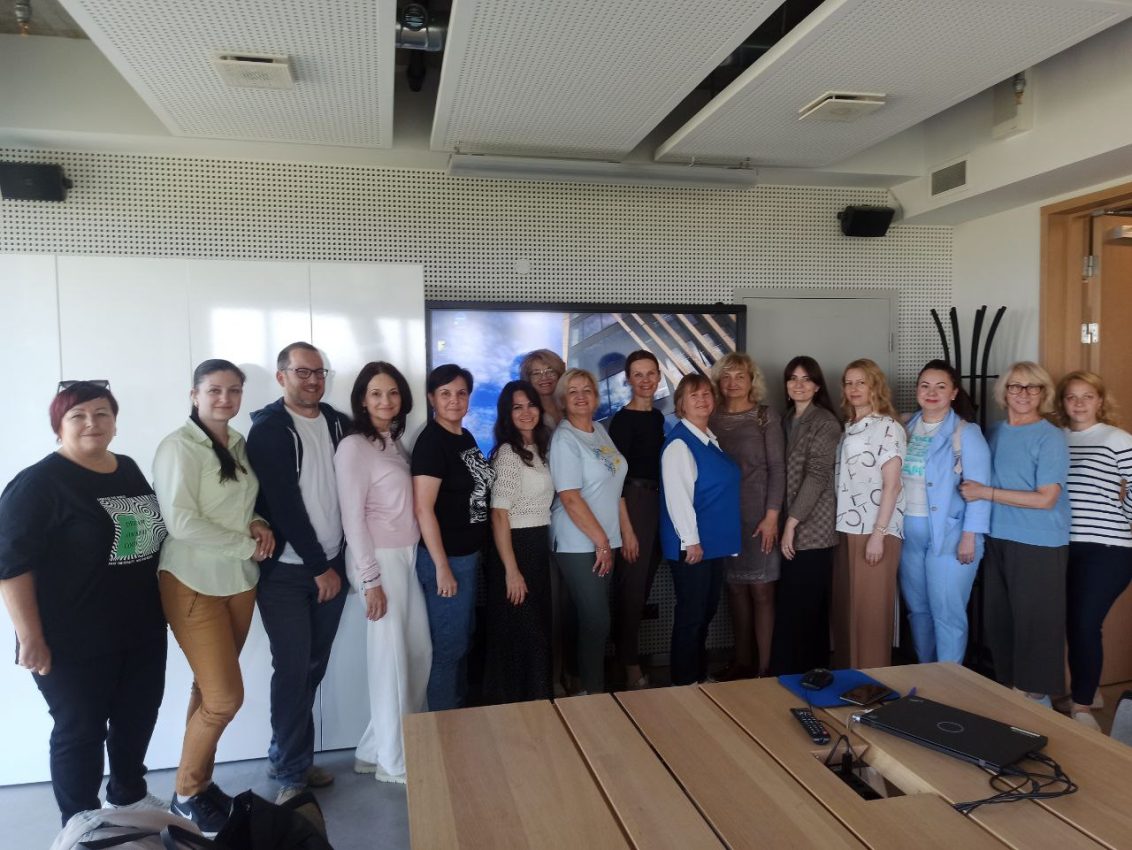
Day 3.
On the third day of the study visit, the participants attended an undergraduate counseling foundation course to explore teaching methods and approaches for undergraduate students. Psychology trainers, Anda Haytniece-Putane and Alla Plaude, answered all additional questions from the audience. Ukrainian scientists agreed that conducting such trainings for first-year students is very useful, as it provides an opportunity to improve acquired skills until the end of studies at the bachelor's level.
In the afternoon, visitors learned about the structure of the bachelor's program, focusing on courses that develop basic counseling skills. Anda Upmane, director of the bachelor's program at the University of Latvia, talked about the curriculum for each academic year, described its structure, teaching methods, assignments and assessment process.
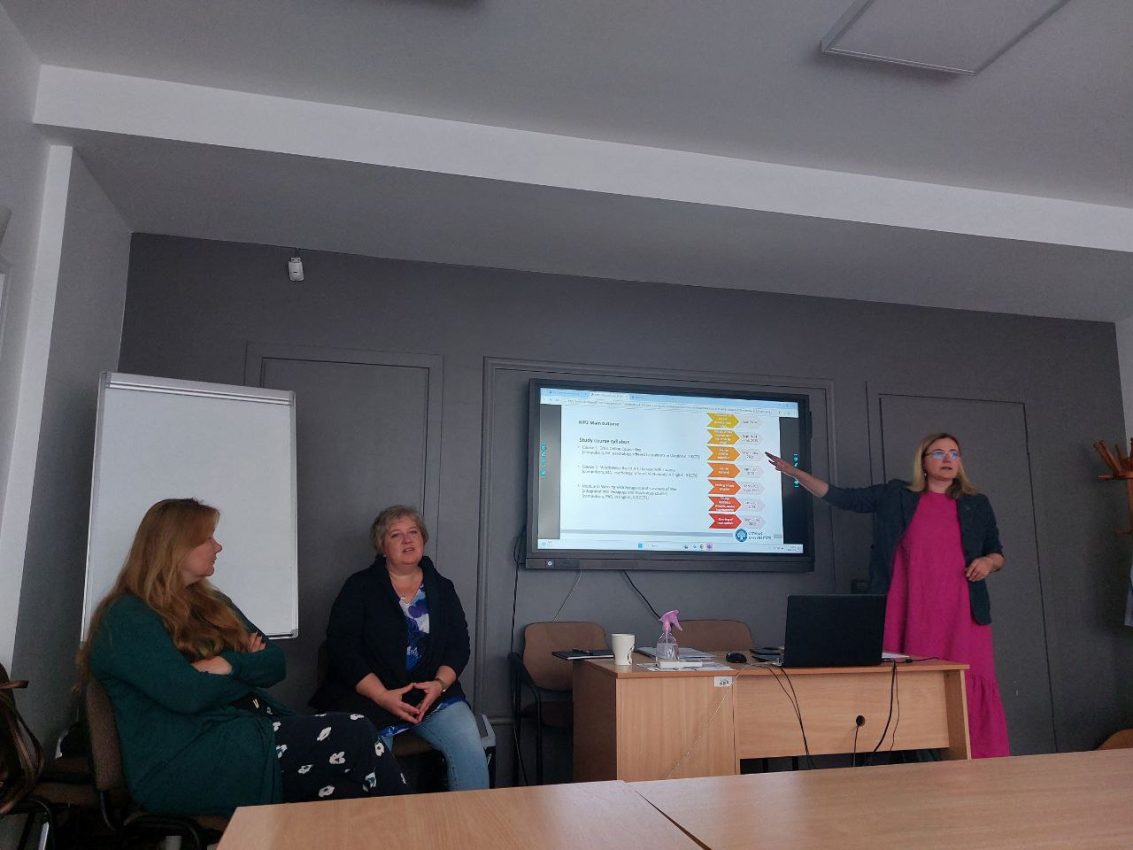
Day 4.
On the fourth day, the team from Ukraine divided into working groups to discuss the development of courses for bachelor's, master's and Ph.D levels under the leadership of Anda Upmane, director of the bachelor's program, Laura Pirsko, director of the master's program, and Ieva Stockenberga, trainer in psychology. Working groups assigned roles, agreed on methods of further communication, and began developing the structure of their courses. Each group demonstrated high involvement and commitment to the process.
The culmination of the fourth day was a visit to the Safe Childhood Center "Dardedze/Veselka", which deals with the prevention of violence and provides psychological services to victims of violence. The director of the center shared the history of the establishment of the center, spoke about the vision and mission, and also demonstrated practical methods of working with different age groups. The center closely cooperates with the department of psychology of the University of Latvia, and all approaches used by the center's psychologists are scientifically based and adapted for different age groups.
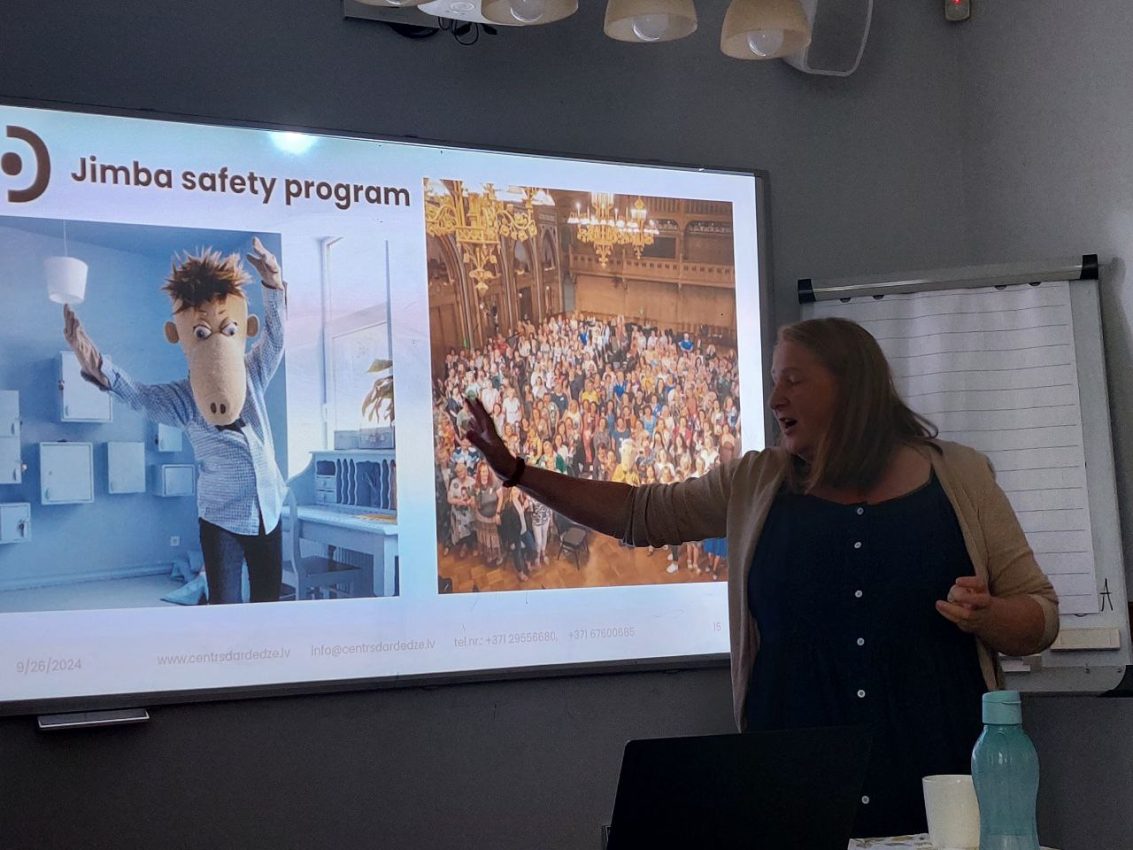
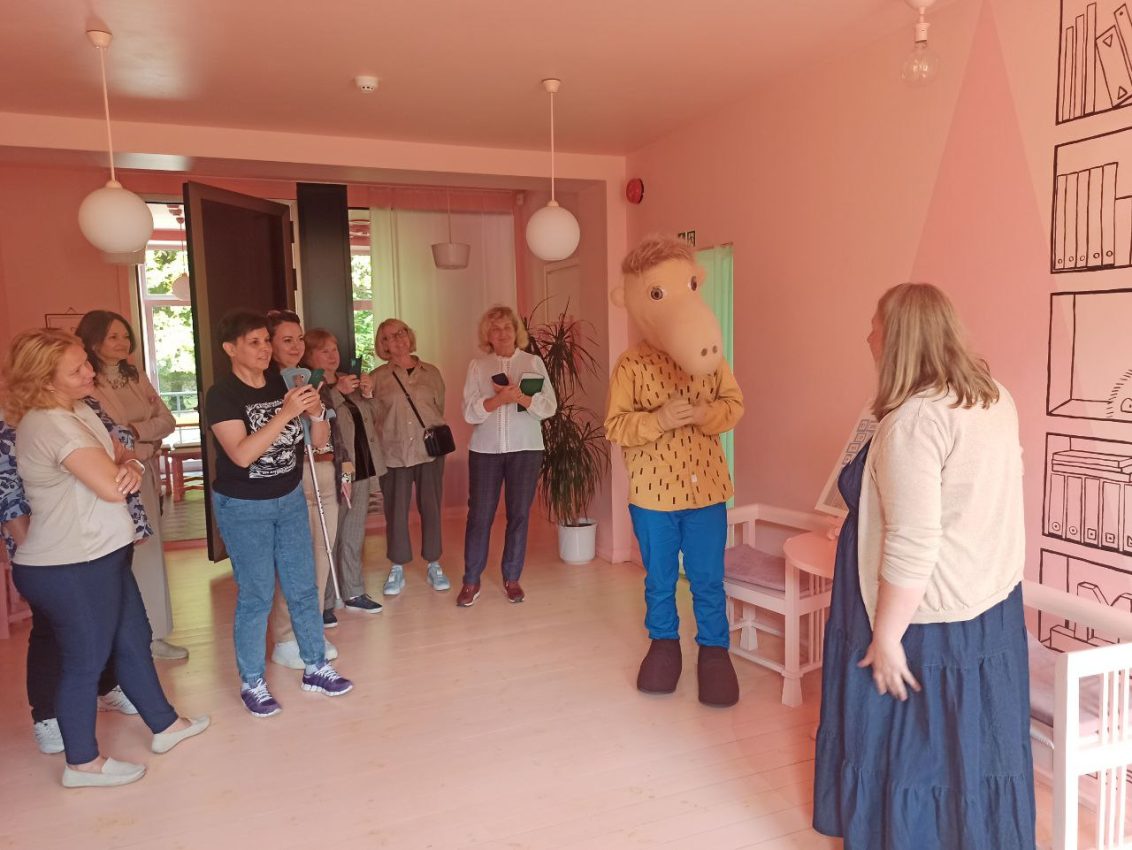
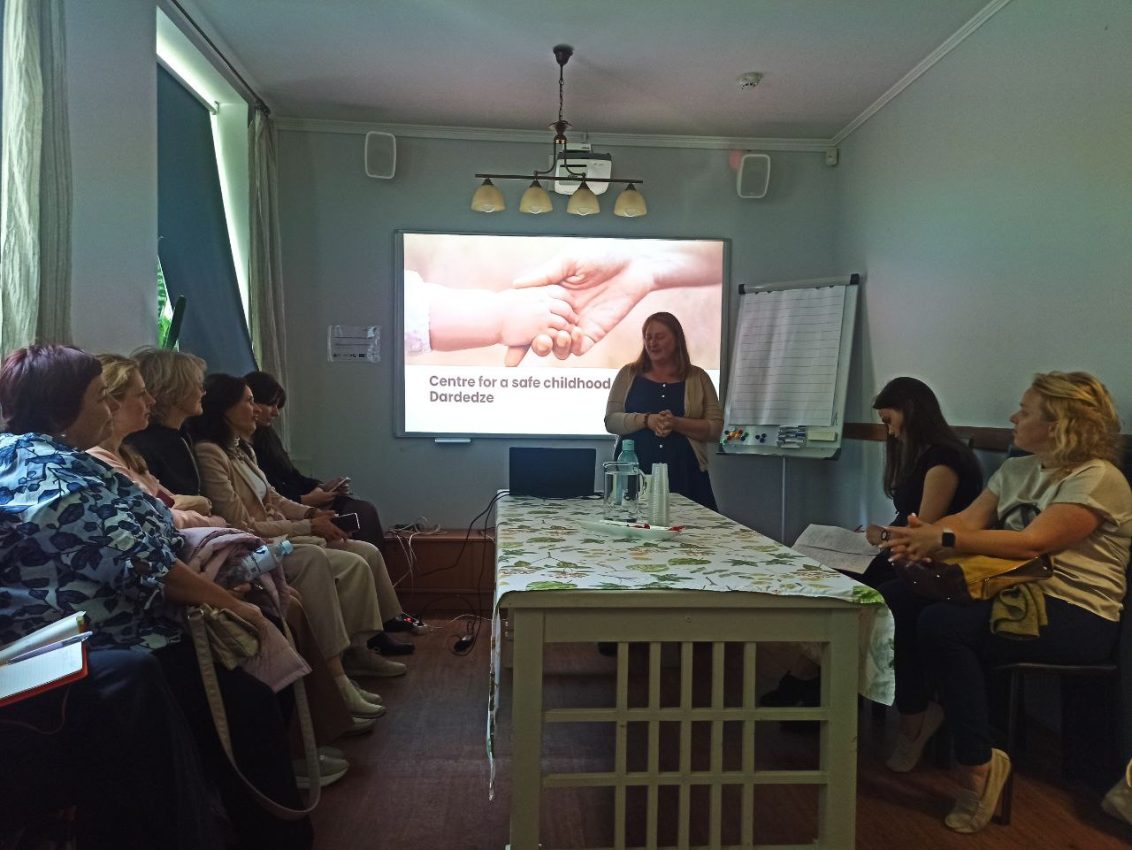
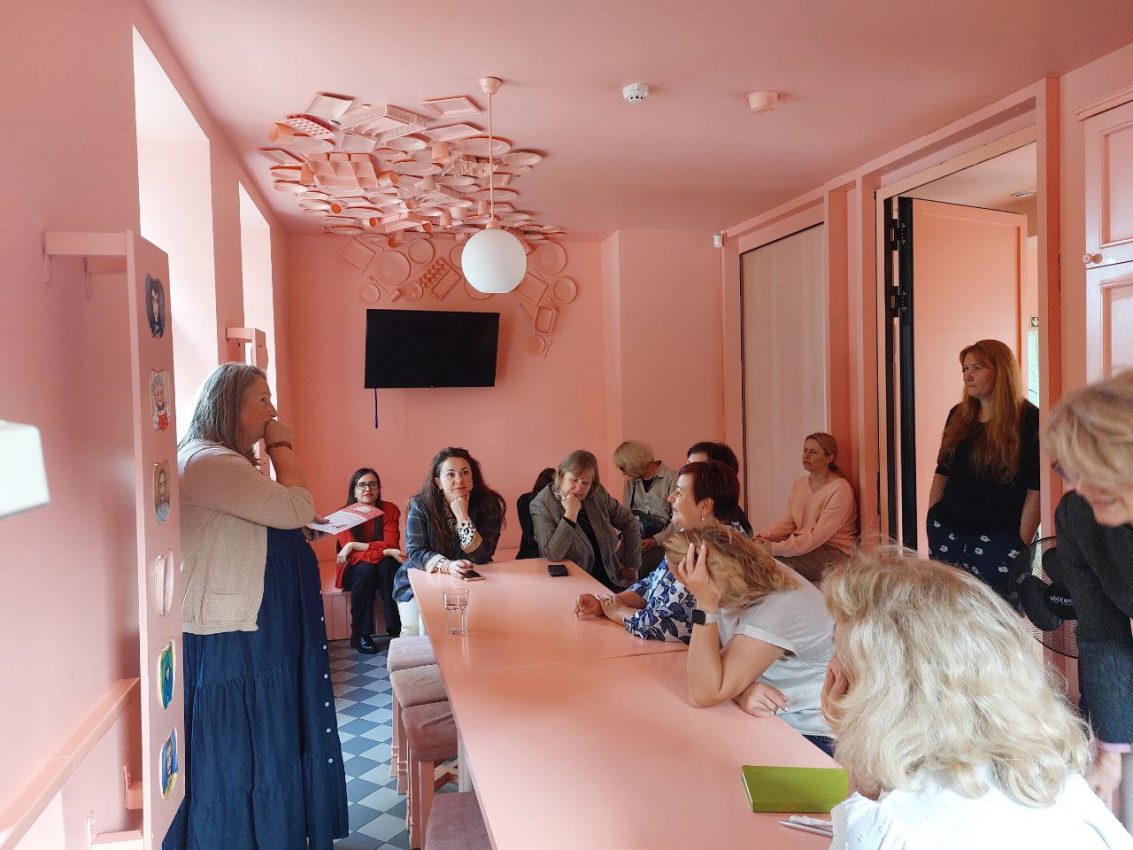
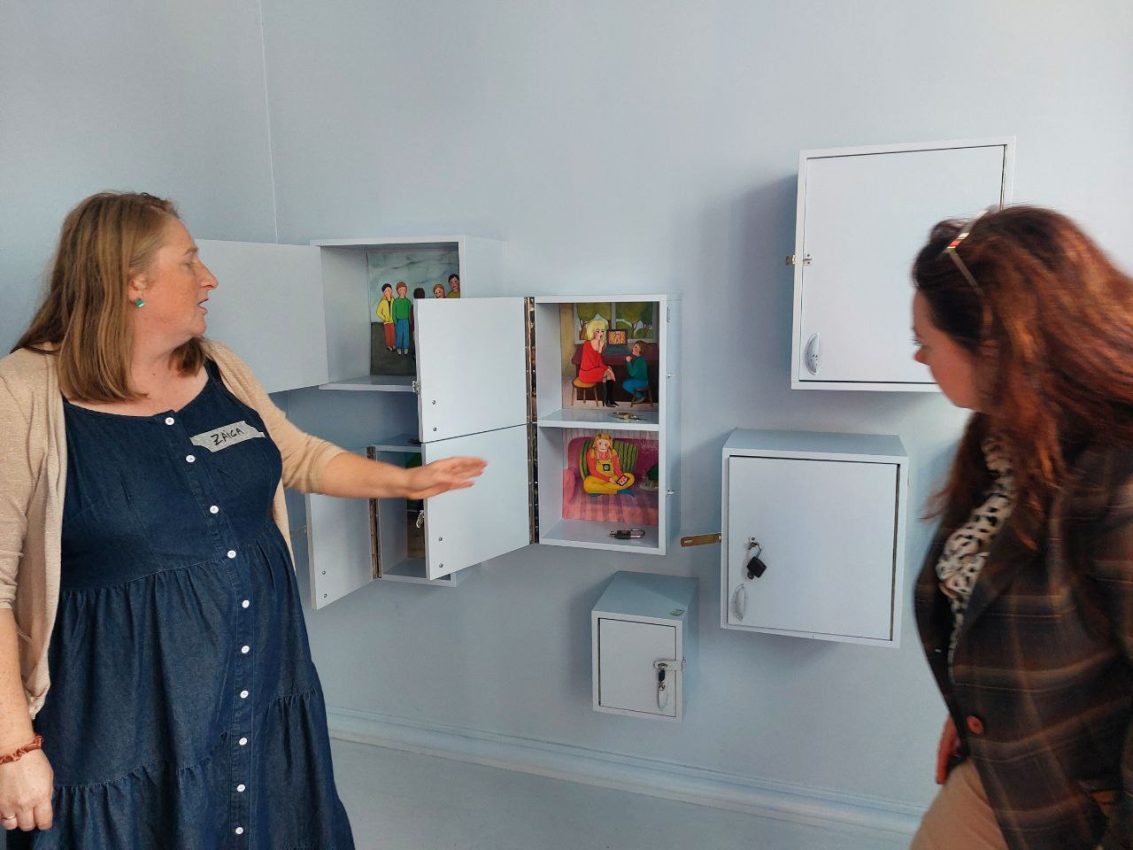
Day 5.
The last, fifth day of the visit began with a lecture by psychology trainer Nikolay Dzyna on the topic "Master's courses in psychological counseling and psychotherapy: observations and discussions at the Psychological Support Center." The lecture was devoted to the study of teaching methods and approaches for master's students. The trainer shared effective crisis counseling strategies and best practices for teaching graduate students in psychological counseling and psychotherapy.
Professor Ieva Bitte, a psychology trainer and clinical supervisor, also shared her experience teaching cognitive behavioral therapy (CBT) techniques for working with trauma. During her lecture, she practiced mindfulness and relaxation techniques with the students—methods that can be useful to everyone. She also outlined the specific symptoms of anxiety and gave the audience advice on how to overcome them.
The study visit ended with a debriefing session, during which participants discussed key findings and considered possible future forms of cooperation. The exchange of knowledge during this visit is expected to strengthen psychological resilience and well-being programs in Ukraine, contributing to the achievement of the goals of the BURN project.
All participants of the study visit received certificates.
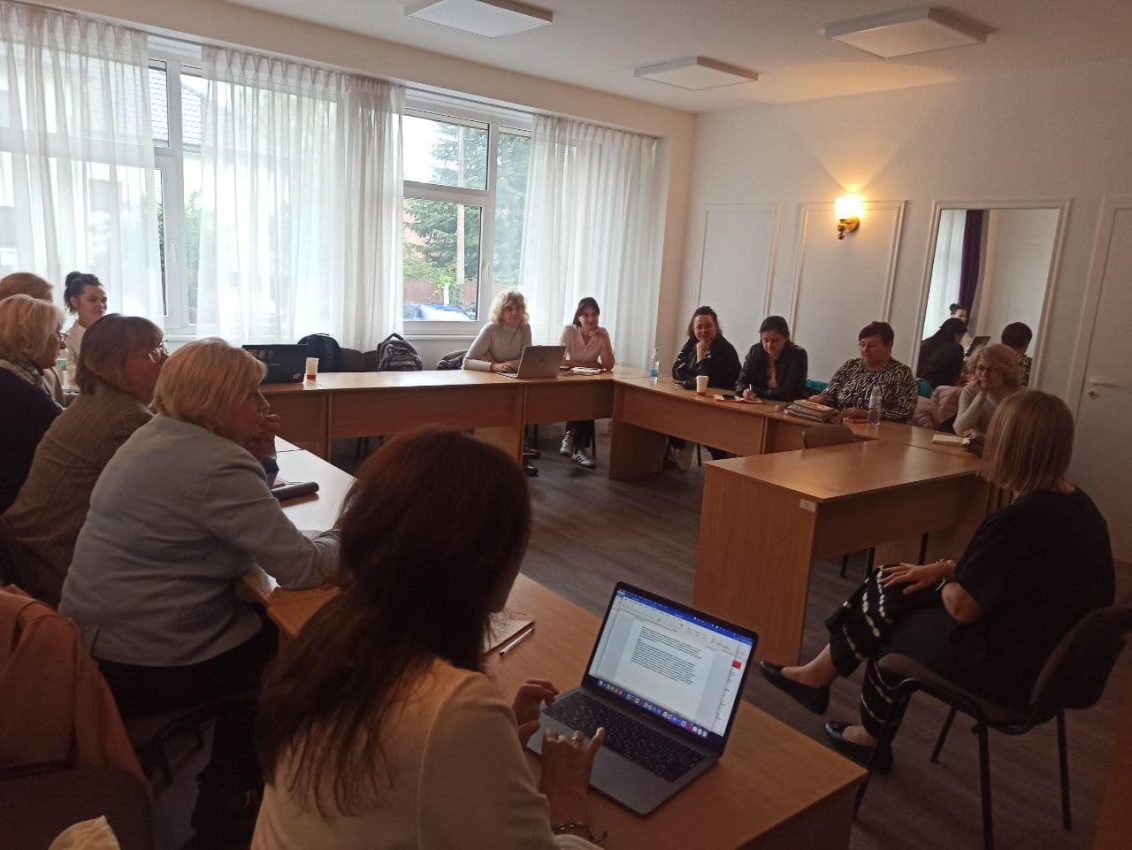
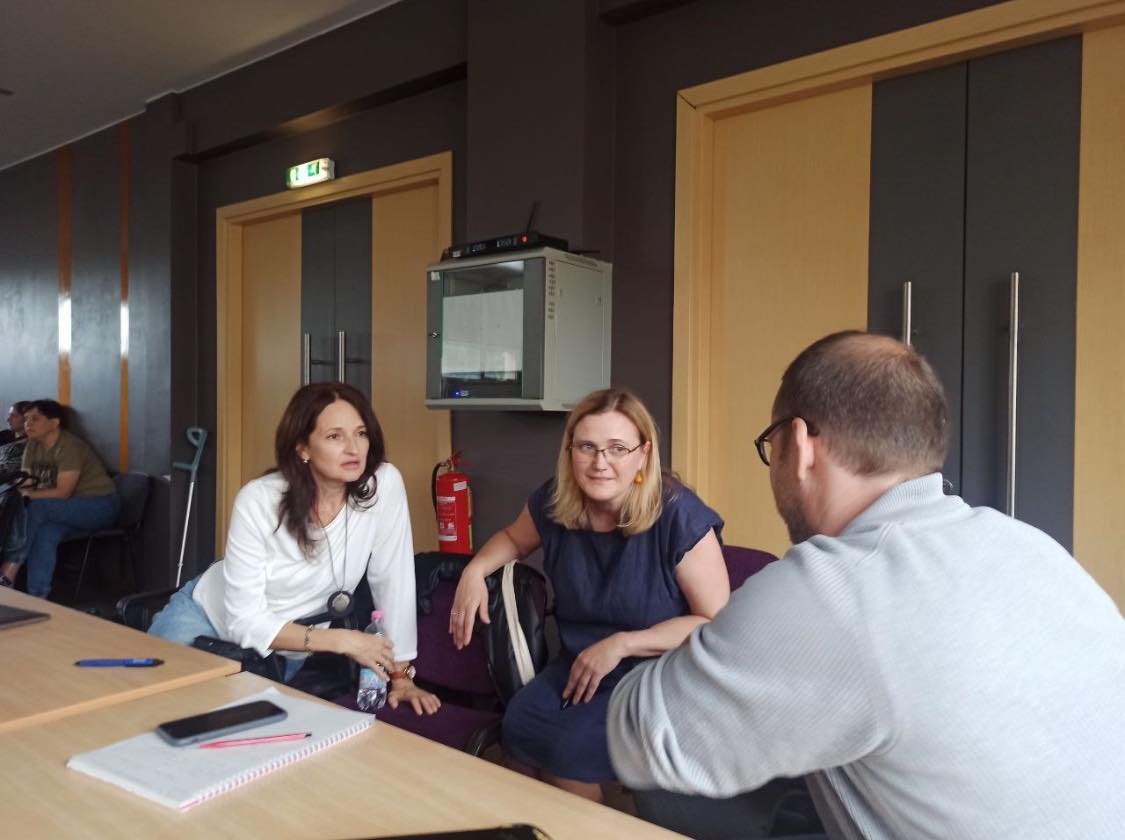
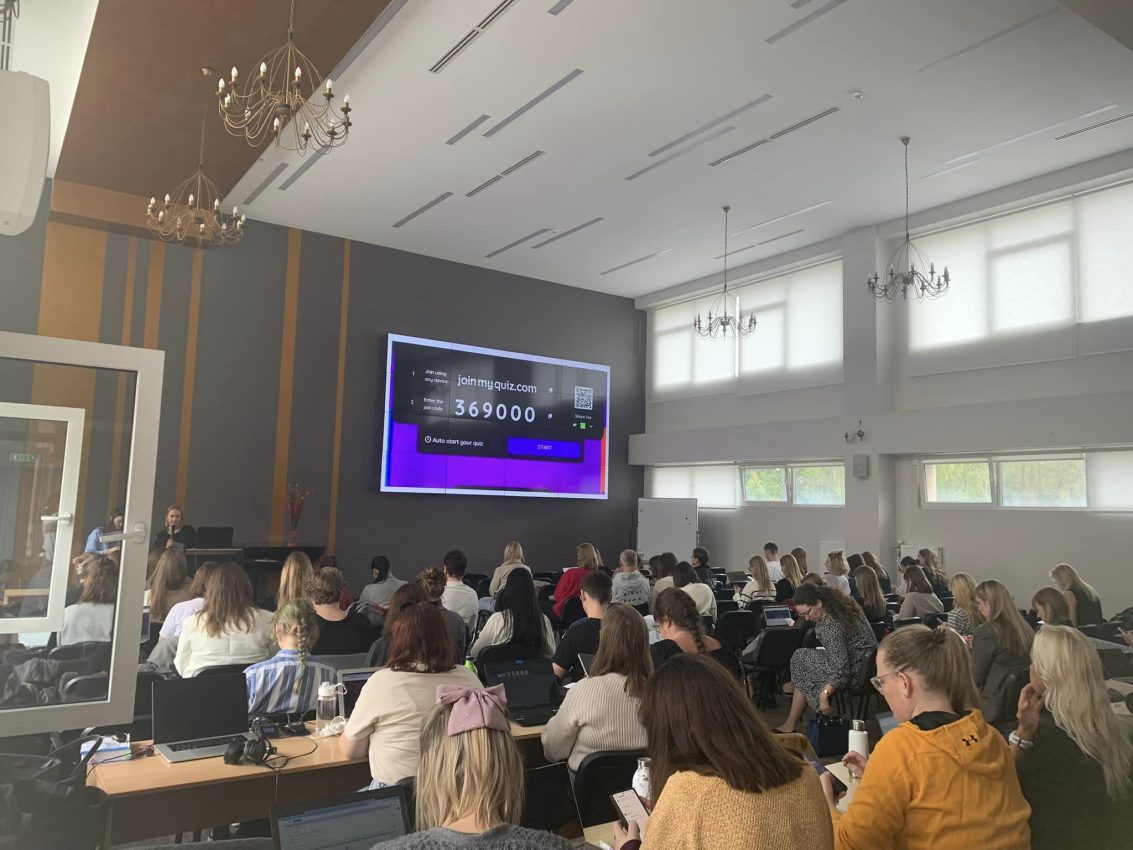
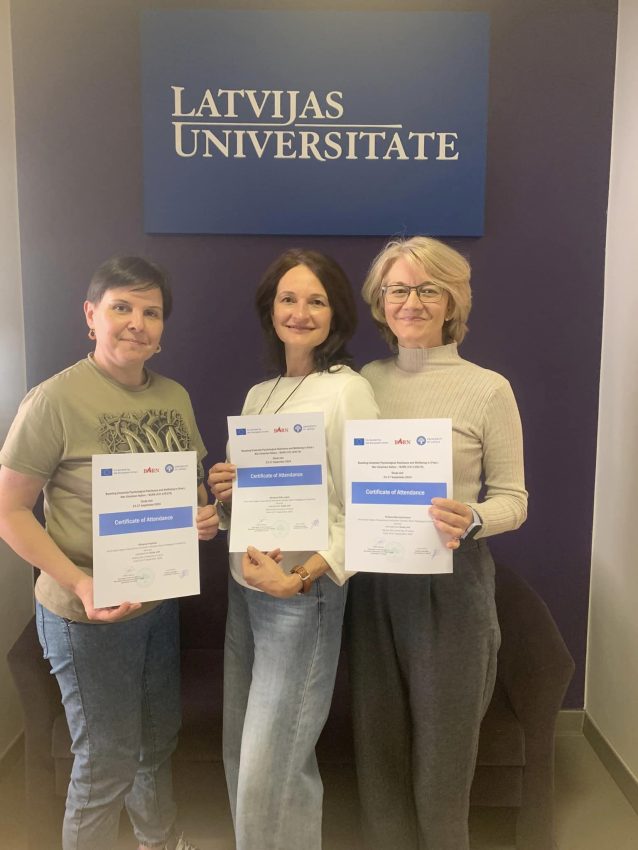
Tour of the University of Latvia.
A tour of the new buildings of the University of Latvia is worth mentioning separately. Designed with today's educational needs in mind, these newly built facilities are spacious, technologically advanced and extremely inclusive. The needs of both students and teachers are prioritized here, which creates an atmosphere in which everyone feels satisfied and as productive as possible.
